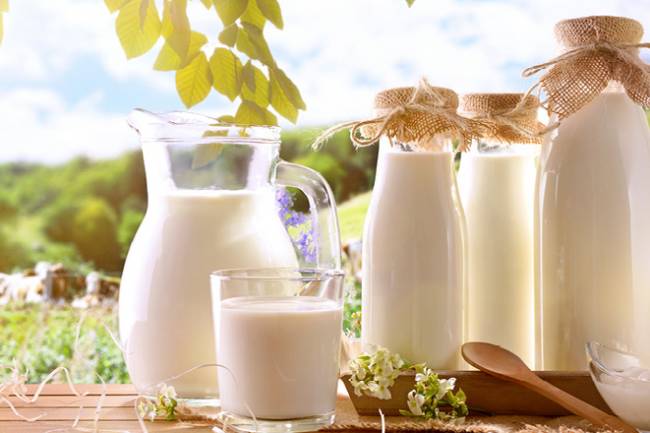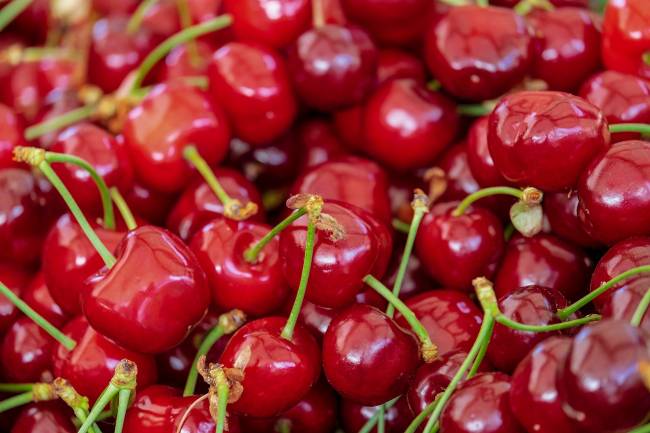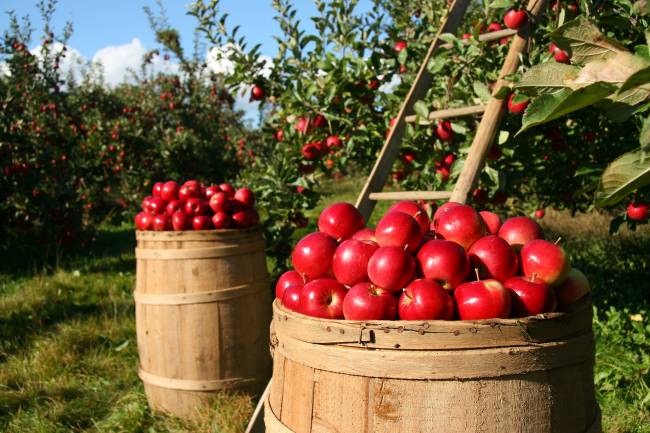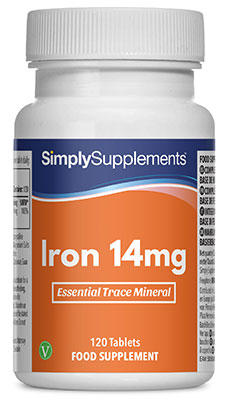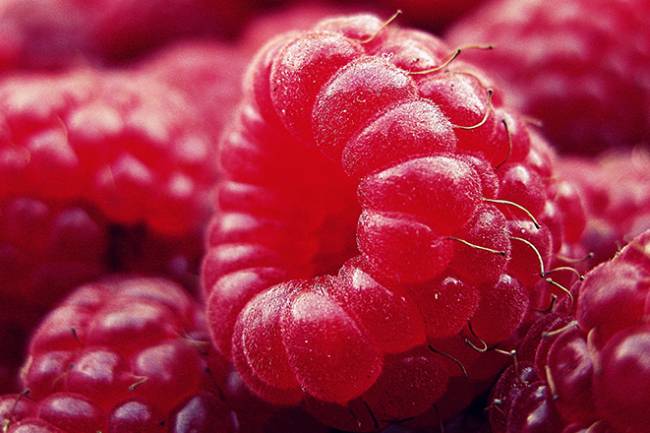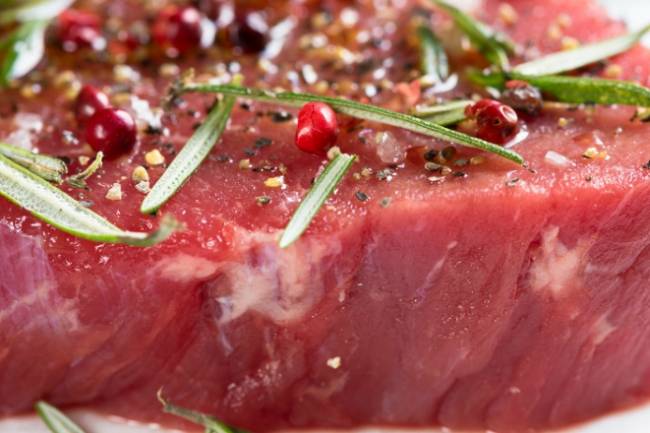The HealthyLife Guide to Veganism
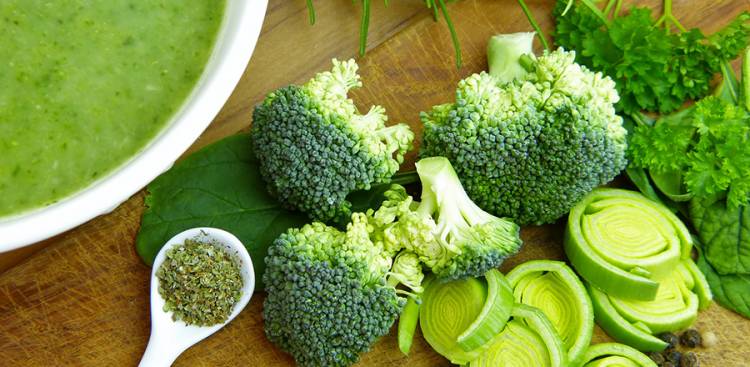
Over the past ten years, veganism in the UK has grown exponentially, being practised by more than half a million people. While this lifestyle's popularity grows each day, there is still some debate about whether an entirely plant-based diet is a benefit or hindrance to our health. A lot of people, however, don't actually fully understand what's exactly involved when a vegan diet is adopted. That's why we've put together this comprehensive guide to help you learn the basics.
What Is Veganism?
Veganism is the lifestyle practice of refraining from eating or using animal products like meat, fish, milk, dairy, leather and even honey. People who take part in veganism are referred to as ‘vegans', and reject the idea that animals and their produce should be used as a commodity. Vegans adopt a diet that completely cuts out the intake or use of animal products, meaning they have to get the nutrients most typically found in meats, fish and dairy from other natural sources like grain, beans, soy, fruits, vegetables and vegan-alternative foods.
Why Do People Become Vegan?
Each individual has their own specific motivations to want to adopt a vegan lifestyle. Some of the more common reasons people become vegan are:
Animal welfare – In order to get the meat from the animal, they have to be killed. There's no getting around it and this is enough for people to want to swear off eating a diet that includes meat as a protein source. Due to the large demand for meat in the UK, a lot of cattle like cows, lamb, pigs and chickens may be found in battery farms, where their living conditions are less than ideal, to say the least. Again, this potential suffering the animals may go through living in these kinds of facilities motivates people to want to stop eating meat and animal produce in an effort to prevent death or harm.
Health requirements – Vegan diets typically contain absolutely no cholesterol, meaning that people who suffer with health conditions like heart disease, diabetes and weight issues may find adopting a vegan diet to be a supportive method to help target a specific ailment they might be suffering from.
Environmentalism – A rising political issue around the world, it's not uncommon for people to want to take the responsibility of helping the world into their own hands by swearing off meat and animals products. Housing cattle, especially cows for beef production requires a lot of land and resources, which vegans feel could be better used for more efficient crop growing. By becoming vegan, people feel that they won't be contributing to this problem.
Is It Healthy to Adopt a Vegan Diet?
Like we said earlier, the number of vegans in the UK is growing quickly, so there's clearly an appeal to eating a diet of this nature. Answering the question of whether a vegan diet is definitively healthy or not is complicated, because different people and their individual health requirements may react differently to what is typically included in a plant-based vegan diet.
What Can I Eat with a Vegan Diet?
One of the big issues that face vegans and their unique diet is maintaining a healthy intake of the essential nutrients, vitamins and minerals needed to ensure your body runs smoothly. Different kinds of meats offer a variety of important and beneficial substances, so by cutting them out of your diet completely, you're going to have to adapt to make sure you're still getting these nutrients, just from vegan-friendly sources. According to the EatWell Guide, 15% of your daily diet should be a healthy protein source like fish, meat, eggs or beans.
However, most of these options are unavailable to vegans because they don't cooperate with the chosen lifestyle, so other alternatives have to be substituted in order for a healthy intake of necessary nutrients to remain. 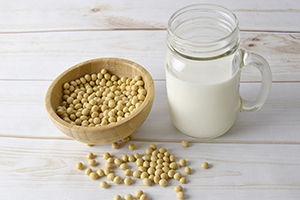 Luckily for vegans, there are plenty of natural, plant-based protein sources for them to take advantage of. Legumes are a common go-to food for vegans, because of their high protein and iron content. Other protein-rich vegan-friendly foods include nuts, seeds and tofu.
Luckily for vegans, there are plenty of natural, plant-based protein sources for them to take advantage of. Legumes are a common go-to food for vegans, because of their high protein and iron content. Other protein-rich vegan-friendly foods include nuts, seeds and tofu.
Even though you might think a vegan diet is quite demanding, there are plenty of plant-based alternatives for you to try; you just have to find them. Dairy is another large food group in your diet that will see the biggest change if you decide to adopt a vegan diet. Milk, cheese and eggs offer beneficial nutrients like calcium and vitamin D, which primarily help to contribute to bone and muscle health.
Just like with protein sources, vegans have to find other plant-based alternatives as substitutes to ensure a healthy intake of calcium, vitamin D and other nutrients is maintained. Things like soy and almonds are primarily utilised to offer natural, nutritious milk alternatives that enable vegans to receive a steady source of calcium and vitamin D. These same food groups are also used in the production of other dairy products like vegan-friendly cheese and yoghurt.
However, even though these nutrients can still be found in vegan alternatives, often times the content they possess is considerably less to animal-produced dairy. For example, soy milk contains just 2% calcium, whereas cow's milk contains around 12%. Because of these potential deficiencies vegans face, they often rely on nutritional supplements as a method of supporting their diet.
Potential Health Benefits
Like we said at the beginning of the article, veganism in the UK has seen a large growth over the past ten years, totalling over 540,000 vegans across the country. This increasing popularity is fuelled by something, so let's take a look at some of the beneficial health claims commonly made when talking about the vegan diet.
Cholesterol control and heart health – One of the major health claims made about vegan diets is that they contain little, if not zero, cholesterol. High cholesterol intake may contribute to heart disease, weight gain and reduced circulation. Vegan diets may therefore be of benefit to people who are at an increased risk of suffering heart health problems, or currently battle ailments like diabetes or high blood sugar.
Weight loss – If the right vegan foods are chosen, your intake of unhealthy substances like trans and saturated fats may decrease. These fats are commonly used in manufactured frozen and fast food as a way of extending and preserving the shelf life of foods. However, in large quantities, these fats may cause unhealthy weight gain. By eliminating your consumption of these fats through the use of a vegan diet, you may be able to help positively influence weight management.
 However, it is important to note that just like in processed foods and ready meals that contain animal products and produce, vegan foods of the same nature may still contain these same trans and saturated fats. Relying on them to form a large part of your diet may not result in weight loss. Just because it's vegan doesn't always mean that it's the healthier option. Be sure to read all food labels carefully so you know exactly what's in every piece of processed food you eat.
However, it is important to note that just like in processed foods and ready meals that contain animal products and produce, vegan foods of the same nature may still contain these same trans and saturated fats. Relying on them to form a large part of your diet may not result in weight loss. Just because it's vegan doesn't always mean that it's the healthier option. Be sure to read all food labels carefully so you know exactly what's in every piece of processed food you eat.
Energy production – Sugars and fats found in a lot of processed foods and meals that feature animal products and produce may have the potential to drain you of energy rather than supply it to you. Vegan diets rely heavily on cereals and grain as sources of natural energy, which provide healthier supplies that may reduce blood sugar spikes. If the stress and grind of daily life leaves you constantly drained, adopting a vegan diet may be one way of remedying that issue.
Potential Health Consequences
Despite the many positive health claims regularly issued in an effort to promote veganism, there are also plenty of sceptics who claim exactly the opposite, holding the opinion that veganism and the act of cutting off all animal products has the potential to risk harmful nutritional deficiencies. In 2009, the American Society of Nutrition ran an experiment looking at the health effects of vegan diets and concluded that “eliminating all animal products from the diet increases the risk of certain nutritional deficiencies.” The study continues to explain that the two big nutrients most commonly found to be deficient in vegans are vitamins B12 and vitamin D.
Vitamin B12 – Vitamin B12, also known as cobalamin, is used by your body in the development of red blood cells, nerve cells and DNA. It also plays a role in the production of energy and maintenance of the nervous system, meaning that “very low B12 intakes can cause anaemia and nervous system damage” . Vitamin B12 can mostly be found in foods like red meat, liver, eggs and milk. The only vegan-friendly foods that contain this important vitamin are things like plant milks and some breakfast cereals. In order to prevent a vitamin B12 deficiency from occurring, vegans largely have to rely on supplementation as their primary source.
Vitamin D – Vitamin D is known to play an important role in the maintenance and development of healthy bones, as well as contribute to a healthy immune system. Vitamin D is largely produced by the body when it is exposed to sunlight, but during the colder months of autumn and winter in the UK there is not enough sunlight in order for your body to produce a sufficient, healthy amount. Vitamin D, however, can also be ingested through the diet in foods like fatty fish, beef, cheese and egg yolks.
Because all of the previously listed foods are not suitable for vegans, they may run the risk of suffering from a vitamin D deficiency. This has been known to help contribute to more serious health issues such as rickets, which could, in severe cases, cause bone and skeletal deformities. Symptoms of a vitamin D deficiency may include muscle weakness, bone pain and fatigue. Aside from nutritional deficiencies, vegan diets also contain much more fibre than omnivorous and vegetarian diets.
A study that investigated the dietary fibre intake of 51 individuals over seven days concluded that “omnivores consumed the least fibre (23g), vegetarians significantly more (37g) and vegans the most (47g).” Fibre is used by the body to help support the digestive system, but too much may have the potential to cause abdominal pain, constipation, bloating and unhealthy weight loss. During the early stages of adopting veganism, especially if your body isn't used to high fibre intakes, you may have to resort to stomach calming remedies to help counter these initial effects.
Now, there are two very different kinds of vitamin D you need to know, one of which is suitable for vegans and one which isn't. These are called vitamin D2, which is also known as ergocalciferol (vegan-friendly) and vitamin D3, also called cholecalciferol (vegan-unfriendly). Cholecalciferol is more active compared to ergocalciferol and is believed to be much more efficient at supporting the absorption of calcium into your bones. Unfortunately, vegans may find that only consuming vitamin D2 is not sufficient to prevent a deficiency from occurring.
Supplements for Vegans
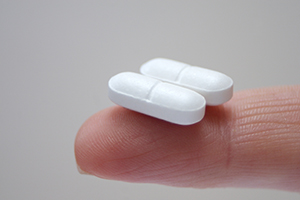 As we discussed earlier, due to the limitations of a vegan diet, supplements play an important role in making sure that essential nutrients that can't be ingested sufficiently through the diet are still supplied to your body. Here are a few you should think about using alongside a vegan diet.
As we discussed earlier, due to the limitations of a vegan diet, supplements play an important role in making sure that essential nutrients that can't be ingested sufficiently through the diet are still supplied to your body. Here are a few you should think about using alongside a vegan diet.
Calcium – Calcium is important to help maintain healthy bones, teeth and muscles. Found in large quantities in animal produce like milk, calcium may be lacking in most vegan diets. Try looking for the right calcium supplement for you to help make sure your bones don't suffer long term nutritional restrictions.
Vitamin D – We talked about the importance of vitamin D earlier in the article, and just like calcium, it's very important for the maintenance of healthy bones. Vitamin D supplements are especially important during autumn and winter, during which the Department of Health recommends that “everyone (including pregnant and breastfeeding women) should consider taking a daily supplement containing 10mcg of vitamin D.”
Iron – In order to help support the production of healthy red blood cells and circulation, iron is needed. It can be ingested through your diet by consuming things like beef and liver. Vegan-friendly foods may not be sufficient on their own to supply optimal amounts, so iron supplements are commonly utilised by vegans as support.
Zinc – Zinc is a mineral that is necessary for healthy metabolism, immunity and body cell maintenance. Although zinc can be found in a variety of vegan-friendly foods like nuts, tofu and whole grains, you may feel that additional dietary supplements are necessary to ensure consistent levels are maintained and regimented. Different people and their individual food preferences may have different dietary needs. If you currently practice a vegan lifestyle, or are interesting in trying it, be sure to talk to your local GP or medical professional for advice about what supplements might be best for you.
Should I Become Vegan?
No one can force you to become a vegan, so deciding to adopt veganism is a decision only you can make. This article is designed to give you a basic knowledge of what veganism is, as well as highlight some of the most important nutritional information you might need to know before you consider changing to a vegan lifestyle. For more advice and information about veganism, your local GP are always available to answer your question and queries with professional advice.
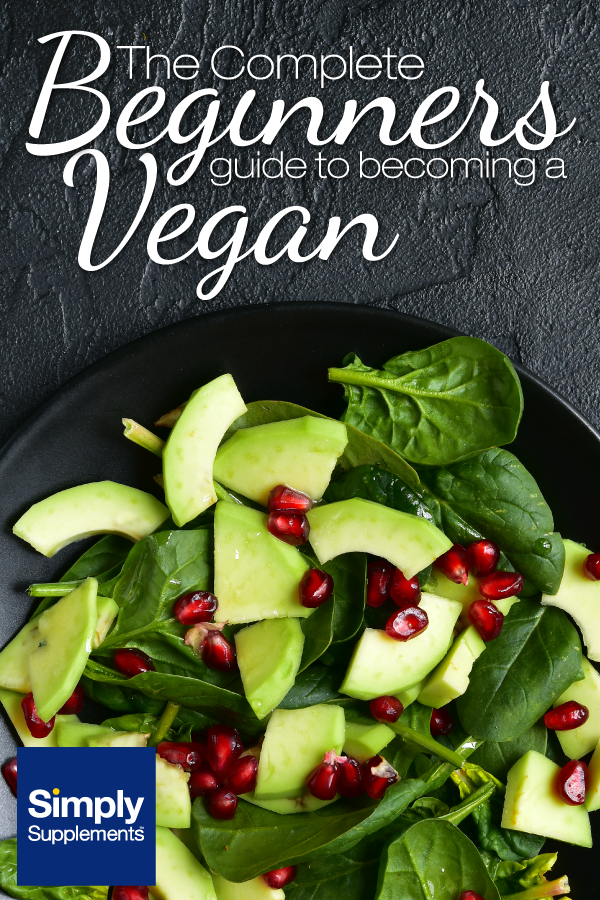
Sources:
1. https://www.gov.uk/government/publications/the-eatwell-guide
2. http://ajcn.nutrition.org/content/89/5/1627S.full
3. https://www.vegansociety.com/resources/nutrition-and-health/nutrients/vitamin-b12/what-every-vegan-should-know-about-vitamin-b12
4. https://www.ncbi.nlm.nih.gov/pubmed/2991173
5. https://www.nhs.uk/conditions/vitamins-and-minerals/vitamin-d/

 Nicole
Nicole 